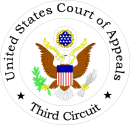A debt collector who attempted to collect a debt barred by a New Jersey statute of limitation did not violate the FDCPA by simply demanding payment of the debt, as held by the Third Circuit’s decision in Huertas v. Galaxy Asset Management.
The court noted that New Jersey’s statute of limitation was procedural and did not extinguish the debt only the means by which it can be enforced. Thus, the court wrote, “the FDCPA permits a debt collector to seek voluntary repayment of the time-barred debt so long as the debt collector does not initiate or threaten legal action in connection with its debt collection efforts.” Clearly, this rationale will have limited impact in states, Wisconsin and Mississippi notably, which have substantive statute of limitations that extinguish debt.
The decision also holds that the New Jersey Consumer Fraud Act does not regulate debt collection activity absent evidence of the sale or marketing of merchandise or services.
A copy of the decision is available here: Huertas


